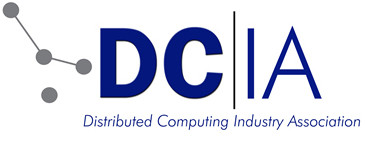In This Issue
- VZ IBM Cloud Access
- O2 Telefonica G-Cloud
- HR Email Privacy Act
- Report from the CEO
- Most Americans Agree
- Google: EPA Needed
- Opponents at Hearing
- Not Impede Security
- Cuban Slams US SEC
- Warrants Not Hinder
- Chairman: Exception
- HR 699 Protects Cloud
- Global Opps for SMEs
- Reasons for Start-Ups
- Security Cloud Driver
- Net Neutrality Hearing
- Coming DCIA Events
Verizon Now Provides Secure Access to IBM Cloud
Excerpted from Press Announcement
 Verizon is now offering its customers a secure and direct connection to the IBM cloud.
Verizon is now offering its customers a secure and direct connection to the IBM cloud.
With Verizon’s Secure Cloud Interconnect Services users can connect directly to IBM Cloud Services through a secure, flexible private link that enables workloads to move seamlessly between clouds.
It also gives enterprises the freedom to store data in a variety of settings, including a traditional IT environment, a dedicated on- or-off premises cloud and a shared off-premises cloud making it easier to scale and meet business requirements.
Verizon’s Secure Cloud Interconnect enables users to take advantage of Software Defined Networking (SDN) capabilities allowing for more control and agility over their connectivity to cloud environments.
Capabilities include consumption-based bandwidth, pre-provisioned on-demand resources, controlled application performance and varying classes of service.
“Verizon’s Secure Cloud Interconnect allows users to connect to applications simply, securely and reliably,” said Shawn Hakl, Vice President of Enterprise Networking and Innovation for Verizon… Read More
O2 Telefonica Awarded Place on G-Cloud 7 Framework
Excerpted from Telecompaper Report
 O2 Telefonica has regained its place on all four lots of the new G-Cloud 7 framework, with a total of eighteen offerings.
O2 Telefonica has regained its place on all four lots of the new G-Cloud 7 framework, with a total of eighteen offerings.
This will allow the company to supply cloud services to public sector organizations.
Since launch, the G-Cloud frameworks have allowed public sector organizations to procure over GBP 806 million of cloud services.
Until recently, 77% of that has been to central government departments.
But, this is beginning to change with adoption increasing across the wider public sector.
As this trend continues, we’re perfectly positioned. We have an increasingly credible portfolio of products that can help customers in their journey towards cloud-adoption.
According to Neil Cruden, Framework Manager at Telefonica UK, “Money is tight. And with challenging budgets agreed at the latest spending review, the Government and Public Sector are looking to save money.”
Cloud services could be the answer. They can help slash the cost of legacy IT systems and encourage mobility… Read More
House Judiciary Holds Hearing on Email Privacy Act
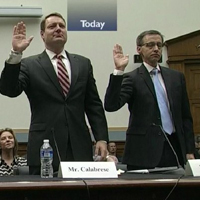 Government officials, CDT’s Policy VP, and a representative from Google testified this week at a US House of Representatives Judiciary Committee Hearing on the Email Privacy Act, which would require the federal government to provide a warrant when asking companies to turn over consumer electronic mail records. Excerpts follow.
Government officials, CDT’s Policy VP, and a representative from Google testified this week at a US House of Representatives Judiciary Committee Hearing on the Email Privacy Act, which would require the federal government to provide a warrant when asking companies to turn over consumer electronic mail records. Excerpts follow.
Chris Calabrese, Vice President, Policy, Center for Democracy and Technology (CDT) said, “Support for privacy reform is deep and abiding.
A majority of Republicans and Democrats in the House support it. More than one hundred technology companies, trade associations, and public interest groups have signed onto ECPA reform principles.
Signatories include nearly the entire tech industry, span the political spectrum and represent privacy rights, consumer interests, and free market values. Finally, the public is firmly behind reform. A recent poll shows 86 percent of voters support an update to ECPA.”
Richard Salgado, Director, Law Enforcement and Information Security, Google added, “It is axiomatic that ECPA no longer reflects users’ reasonable expectations of privacy. It is long past time for Congress to pass HR 699… Read More
Report from DCIA CEO Marty Lafferty
 The DCIA participates in the Digital Due Process (DDP) coalition, which advocates long overdue reform of the seriously outdated Electronic Communications Privacy Act (ECPA).
The DCIA participates in the Digital Due Process (DDP) coalition, which advocates long overdue reform of the seriously outdated Electronic Communications Privacy Act (ECPA).
ECPA was written thirty years ago, before widespread adoption of the Internet by consumers or the advent of cloud computing.
While Americans expect that their homes and offices will not be subject to government searches of personal, financial, and medical records — or reading of mail — without a duly obtained search warrant; under current law, as soon as those records are scanned and stored in the cloud, or the message is sent by email, the government has free access.
The current status seriously undermines Fourth Amendment protections and violates fundamental privacy expectations of US citizens.
The Email Privacy Act in the House of Representatives (HR 699), and its companion ECPA Amendments Act in the Senate (S 356), will protect consumer privacy, prevent government overreach, and foster continuing industry advancement and innovation.
After five years of increasing momentum for ECPA reform, HR 699 now has the backing of 304 Members of Congress, a significant majority of both parties.
Each of these measures should be passed, as currently drafted, without further delay.
The DCIA strongly supports the testimony of Chris Calabrese, Vice President, Policy, at the Center for Democracy and Technology (CDT), during this week’s House Judiciary Committee Hearing on this subject, and we oppose those who spoke against his views.
There is simply no need for the carve-outs sought by opponents to weaken privacy protections, circumvent judicial oversight, and evade the warrant requirement.
Government agencies can already serve a subpoena and demand production of relevant materials and the courts have regularly compelled individuals and companies to disclose their data and imposed sanctions for non-compliance.
We also support the views of Google’s Director of Law Enforcement Information and Security, Richard Salgado, whose testimony cited the Riley v. California Supreme Court decision requiring law enforcement to obtain a warrant before searching digital content on a mobile phone, and the fact that four states have already updated their versions of ECPA.
Currently proposed federal legislation to reform ECPA will provide the same level of safety and security to digital data as US citizens already have for printed material.
It’s time, finally, to extend the fourth amendment to the digital world and bring basic privacy protection into the twenty-first century. Share wisely, and take care.
Most Americans Agree that Decades-Old ECPA Is Broken
Excerpted from The Daily Dot Report by Eric Geller
 Americans overwhelmingly support efforts to overhaul electronic communications surveillance practices, according to a new poll that could prod lawmakers to pass a popular bill implementing those reforms.
Americans overwhelmingly support efforts to overhaul electronic communications surveillance practices, according to a new poll that could prod lawmakers to pass a popular bill implementing those reforms.
The Electronic Communications Privacy Act (ECPA), passed in 1986, allows law enforcement to obtain online communications records like emails and cloud-hosted photos without a warrant.
Many in Congress contend that times have changed — and that the law should change, too.
They have introduced bills like the ECPA Amendments Act and the Email Privacy Act to place new limits on email surveillance.
The Digital 4th Coalition has released a poll showing that 86 percent of Americans support updating ECPA with new privacy protections.
The notion of online privacy reform is popular across every demographic, attracting support from 87 percent of men, 86 percent of women, 85 percent of Americans younger than 30, and 79 percent of Americans older than 65.
Support is also strong in both major parties, with 86 percent of both Democrats and Republicans calling for ECPA reform… Read More
Google: EPA Is Needed to Protect Cloud Computing
Excerpted from The Business Journals Report by Kent Hoover
 Should government investigators be required to get a warrant in order to compel third parties such as Google to turn over your emails?
Should government investigators be required to get a warrant in order to compel third parties such as Google to turn over your emails?
Google and other technology companies think so, and so do privacy advocates.
They support the Email Privacy Act (EPA), which would require law enforcement officials and government agencies to obtain a warrant in order to compel third-party service providers to produce the content of electronic communications.
The legislation, however, does not affect national security investigations under the Foreign Intelligence Surveillance Act (FISA).
The bill, which has 304 sponsors in the House, is designed to bring the Electronic Communications Privacy Act (ECPA), which was passed in 1986, into the age of cloud computing.
Under the ECPA, law enforcement agencies can obtain emails from an electronic communication service provider without getting a warrant.
A federal circuit court ruled in 2010 that this ECPA provision violates the Fourth Amendment, and many companies follow that interpretation… Read More
EPA Opponents at House of Representatives Hearing
Excerpted from MediaPost Report by Jess Nelson
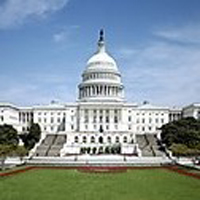 A 2-year-old email privacy bill finally had its day in the House of Representatives Tuesday.
A 2-year-old email privacy bill finally had its day in the House of Representatives Tuesday.
The Email Privacy Act — a bipartisan bill led by Kevin Yoder (R-KS) and Jared Polis (D-CO) — is aimed at closing a loophole in the 1986 Electronic Communications Privacy Act (ECPA) that allows the government to use a subpoena to force technology companies and service providers to reveal customers’ emails if they are more than 180 days old.
The new bill — if passed and signed into law — would ensure that government agencies obtain a warrant before any stored electronic communications are exchanged, such as email, text, and/or video.
The hearing also comes at a time of heightened national and international security concerns, and some lawmakers have argued that privacy laws would hinder counter-terrorism efforts.
Proponents of the bill want to enhance digital security, but also aim to update a technologically outdated law.
The original 1986 act was passed before the rise of cloud storage, and when technology companies would likely not have stored anything older than six months.
Opponents of the bill include representatives from the Federal Bureau of Investigations (FBI) and Securities and Exchange Commission (SEC)… Read More
ECPA Reform Will Not Impede National Security
Excerpted from Digital 4th Report
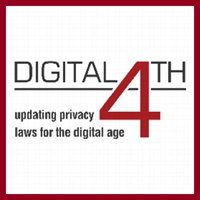 Our nation has two parallel sets of laws on government surveillance: one for criminal investigations, and one for national security investigations, including the investigation of international terrorism and other crimes affecting national security.
Our nation has two parallel sets of laws on government surveillance: one for criminal investigations, and one for national security investigations, including the investigation of international terrorism and other crimes affecting national security.
The Digital Due Process (DDP) coalition’s recommendations for ECPA reform do not touch the rules for national security and international terrorism.
ECPA reform will not affect intelligence investigations.
ECPA reform legislation based on the DDP principles will not touch the authority for National Security Letters (NSLs).
The Foreign Intelligence Surveillance Act has its own set of rules for government access to email and documents stored in the cloud. ECPA reform legislation will not change those rules in any way.
FISA authorities can be used to obtain both the contents of emails of a foreign terrorist and associated addressing data, and ECPA reform legislation would not amend FISA.
The Patriot Act and court decisions have made it clear that information collected using FISA authorities can be used in criminal prosecutions… Read More
Mark Cuban Slams US SEC on Email Privacy Stance
Excerpted from Reuters Report by Suzanne Barlyn and Sarah Lynch
 Billionaire investor Mark Cuban is lashing out against the US Securities and Exchange Commission (SEC) over its push against legislation that would require government agencies to get warrants before accessing emails of people under investigation.
Billionaire investor Mark Cuban is lashing out against the US Securities and Exchange Commission (SEC) over its push against legislation that would require government agencies to get warrants before accessing emails of people under investigation.
Cuban, in a letter to US lawmakers, wrote that the SEC’s position is “inconsistent with consumers’ reasonable expectation of privacy in 2015” and violates the US Constitution’s Fourth Amendment protections from unlawful searches and seizures.
The Dallas Mavericks owner has been a vocal critic of the SEC, after a federal jury cleared him of insider-trading charges in 2013 following a years-long battle.
“As the target of an investigation, I know that the SEC has a broad array of tools at their disposal to obtain information directly from targets,” Cuban wrote in the November 30th letter.
Cuban’s letter to top Democrats and Republicans on the US House and Senate Judiciary Committees, which are considering legislation to update the 1986 Electronic Communications Privacy Act (ECPA), preceded a hearing on Monday in which the SEC’s enforcement head, Andrew Ceresney, testified about the agency’s position… Read More
Requiring Warrants Will Not Hinder Investigations
Excerpted from Digital 4th Report
 “When we’re seeking content from service providers, for the most part right now, Department of Justice (DoJ) policy is to seek a search warrant in order to obtain content.
“When we’re seeking content from service providers, for the most part right now, Department of Justice (DoJ) policy is to seek a search warrant in order to obtain content.
I think there’s no doubt that there are going to be certain modifications made to ECPA.
I also know that it’s the position of the DoJ that the 180-day distinction is an artificial one.
Speaking as an FBI agent, we take our legal guidance from the DoJ, so we would follow that.” – Konrad Motyka FBI Agents Association President
“I don’t see anything in the Senate bill that’s going to seriously concern law enforcement in terms of our ability to request warrants and to get the contents of the material that we need.
Since you’ve already got to get warrants for the stuff that’s less than 180 days, it’s obviously not an insurmountable standard.” – Joseph Cassilly, State’s Attorney in Harford County, MD, and former President of the National District Attorneys Association
“As a former federal prosecutor, I can assure you such a requirement would not inhibit law enforcement investigations… Read More
Judiciary Chairman Wants Warrant Exception in EPA
Excerpted from The Hill Report by Mario Trujillo
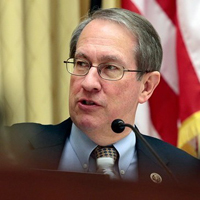 House Judiciary Chairman Bob Goodlatte (R-VA) on Tuesday proposed tweaking an email privacy bill supported by more than 300 members to include an exemption that would force Internet companies to turn over customer data during an emergency.
House Judiciary Chairman Bob Goodlatte (R-VA) on Tuesday proposed tweaking an email privacy bill supported by more than 300 members to include an exemption that would force Internet companies to turn over customer data during an emergency.
Supporters of the Email Privacy Act (EPA) see any changes as unnecessary, given that the bill has won support from a supermajority of the House in the past two Congresses.
However, reservations from federal agencies and law enforcement to the legislation have prevented the bill from moving.
The legislation is aimed at closing a loophole in the 1986 Electronic Communications Privacy Act (ECPA) that lets the government use a subpoena, rather than a warrant, to force companies such as Google and other service providers to hand over customers’ electronic communications.
Goodlatte, however, said there is “nuance” within the law. In his opening statement at a hearing Tuesday, Goodlatte endorsed one change supported by law enforcement that would make it mandatory for Internet companies to turn over information in an emergency situation before a warrant has been obtained… Read More
HR 699 Should Protect Cloud Computing
Excerpted from CloudPro Report by Clare Hopping
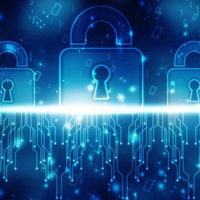 A number of technology companies, including Google, have come together at a hearing on the Email Privacy Act (EPA), which specifies US governmental bodies must obtain a warrant in order to gain access to customer emails.
A number of technology companies, including Google, have come together at a hearing on the Email Privacy Act (EPA), which specifies US governmental bodies must obtain a warrant in order to gain access to customer emails.
These technology companies argue that putting measures in place to prevent official bodies from gaining access to the content of emails is essential to benefit the future of cloud computing.
At present, under the Electronic Communications Privacy Act (ECPA), law enforcement agencies are able to obtain emails from a provider without getting a warrant.
However, a court ruled in 2010 that in fact, this legislation violates the US’s Fourth Amendment, which specifies a person has the right to “be secure in their persons, houses, papers, and effects, against unreasonable searches and seizures, shall not be violated, and no warrants shall issue, but upon probable cause, supported by oath or affirmation, and particularly describing the place to be searched, and the persons or things to be seized.”
“Users expect, as they should, that the documents they store online have the same 4th Amendment protections as they do when the government wants to enter the home to seize documents stored in a desk drawer… Read More
Cloud Computing Brings Global Opportunities for SMEs
Excerpted from Arab News Report by Mamdouh Najjar
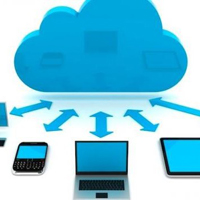 Starting small-to-medium enterprises (SMEs) has become easier and more economically feasible on both technical and productive aspects, unlike the case several years ago when these companies used to pay a fortune to build their IT infrastructure.
Starting small-to-medium enterprises (SMEs) has become easier and more economically feasible on both technical and productive aspects, unlike the case several years ago when these companies used to pay a fortune to build their IT infrastructure.
Cloud computing technologies have helped in reducing some expenses and eradicating others that are paid by these companies.
For instance, these companies will not need server hardware for e-mail, productivity applications and databases or even devices operating systems.
Therefore, companies using cloud computing technologies now have great competitive market opportunities that might become a vital factor for their success in financial resources management and providing innovative products and services to their customers.
Moreover, cloud computing technology enables companies’ immediate expansion in terms of adding or reducing computing capacities according to their need, which makes the management of technical resources more effective… Read More
7 Reasons Why Start-Ups Should Migrate to Cloud
Excerpted from Tech.Co Report by Ahmad Raza
 Cloud computing provides many competitive advantages to today’s start-ups. It provides distributive IT software and hardware, which saves the costs of the business’s IT infrastructure.
Cloud computing provides many competitive advantages to today’s start-ups. It provides distributive IT software and hardware, which saves the costs of the business’s IT infrastructure.
This feature is particularly beneficial for start-ups as they adopt emerging software easily without making numerous purchases.
Business managers do not have to invest much in high performance computers, because cloud computing allows access to centralized applications, which do not require to be installed locally.
Businesses that migrate to the cloud have proven to be more agile and effective, especially when they can scale their IT infrastructure.
The cloud is cheaper for start-ups.
One of the unsophisticated ideas from the early days of cloud computing is that the cloud is cheaper; hence it saves start-ups a considerable amount of money.
Through the cloud, start-ups gain access to great computing power at incredibly low cost… Read More
Security Will Drive Small Businesses to Cloud in 2016
Excerpted from CloudTech Report by James Bourne
 It has long been said that security concerns are what drives small businesses away from putting their data in the cloud.
It has long been said that security concerns are what drives small businesses away from putting their data in the cloud.
Yet according to Oscar Arean, Technical Operations Manager at disaster recovery provider Databarracks, 2016 will see more small-to-medium firms move towards cloud services as managing security in-house becomes an increasing headache.
In particular, Arean argues the need for small businesses to move to Office 365 — almost by default — because of its simplicity.
“Every year, more businesses reach the end of life of their onsite hardware and are faced with the choice of on-premise or move to the cloud,” he explains.
“Office 365 will be the default for most small businesses because it’s so simple to use.”
He adds, “You don’t need particularly advanced IT skills to set it up and in many ways it takes the headache out of security because you know Microsoft has a vested interest in protecting your data.”
The damage to their reputation would be huge if they were to suffer a breach… Read More
Eight Questions about Net Neutrality Court Hearing
Excerpted from NY Times Report by Cecilia Kang
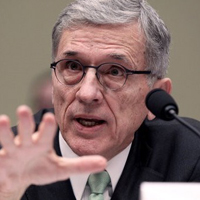 The Federal Communications Commission (FCC) will head to court on Friday to defend its Net Neutrality Rules against opponents who want to overturn the broadband regulations, a hearing that may help determine how consumers get access to content on the web.
The Federal Communications Commission (FCC) will head to court on Friday to defend its Net Neutrality Rules against opponents who want to overturn the broadband regulations, a hearing that may help determine how consumers get access to content on the web.
If this sounds familiar, it’s because the FCC has twice appeared in front of the same federal court to argue over net neutrality policies, in particular a set of regulations aimed at preventing favoritism on the Internet.
In both cases, the FCC argued that it had the authority to regulate high-speed Internet providers, while opponents argued the agency was overstepping the mandates of Congress.
Both times, the agency lost.
Hoping that the third time will be the charm, the FCC’s lawyers will tell a panel of judges at the United States Court of Appeals for the District of Columbia Circuit that its most recent version of net neutrality rules is on firmer legal ground.
With all the twists and turns of the FCC’s years-long net neutrality push, we offer this guide on the latest developments and what they may mean for you… Read More
Coming Events of Interest
Internet of Things World Forum (IoTWF) — December 6th-8th in Dubai. IoTWF is an exclusive event that brings together the best and brightest thinkers, practitioners, and innovators from business, government, and academia to accelerate the market adoption of the Internet of Things.
CES — January 6th-9th in Las Vegas, NV. The world’s gathering place for all who thrive on the business of consumer technologies. CES has served as the proving ground for innovators and breakthrough technologies for more than 40 years.
ADRM Working Group Meeting — January 28th via Global Videoconference. Contact the DCIA for information about joining the group and attending the meeting that will focus on interoperability among DRM platforms and simplifying DRM implementation.
Industry of Things World USA — February 25th-26th in San Diego, CA. A new international information exchange forum featuring four concurrent tracks covering business model generation, technology and infrastructure, data management, and security.
Delivery of Things World — April 25th-26th in Berlin, Germany. DevOps specialists, continuous development strategists, architect newbies, development geeks, and cloud geniuses from across the spectrum of DevOps transformation come together at this stimulating and innovative event.
Cloud and DevOps World Forum 2016 — June 21st-22nd in London, England. Now in its eighth year, C&DWF is firmly established as the leading content-led exhibition for the European Cloud and DevOps community and the premiere meeting place for CIOs.
Security of Things World — June 27th-28th in Berlin, Germany. Topics include securing cyber physical systems for IoT, expanding IT security with intelligence-led ops, business continuity management considerations, data privacy in an interconnected world, and security strategies.
Industry of Things World Europe — September 19th-20th in Berlin, Germany. IoT business models, new IoT markets and strategies, product lifecycle management, next generation data handling and value assessment, IoT organizational impacts, and IoT security issues.
